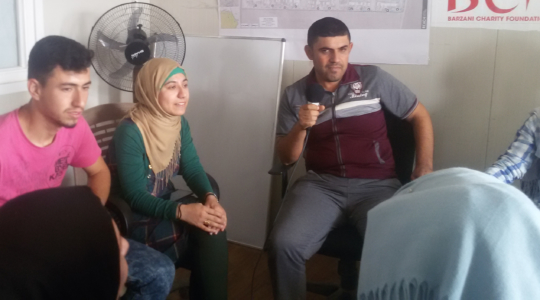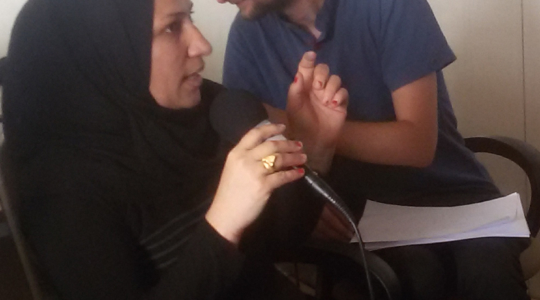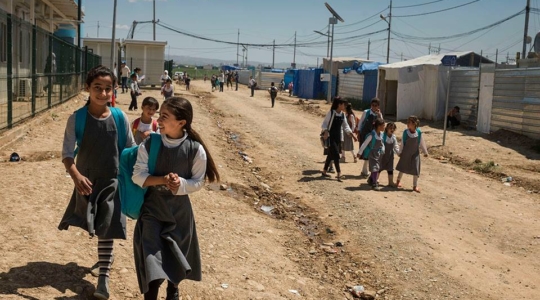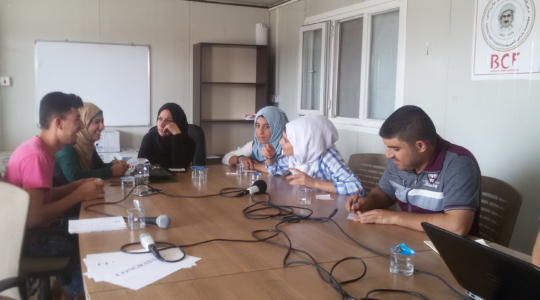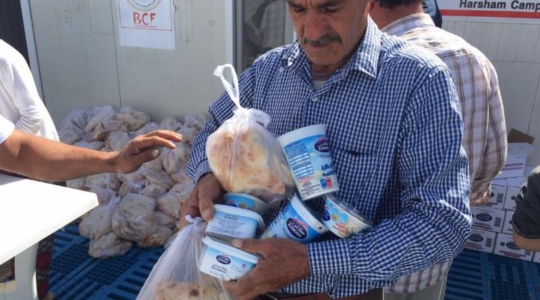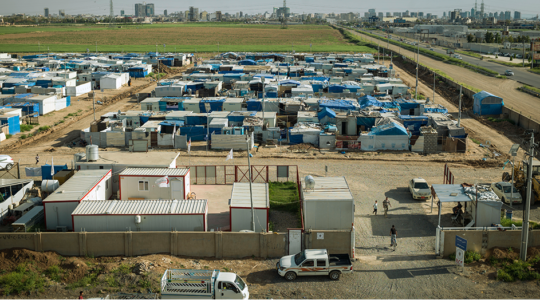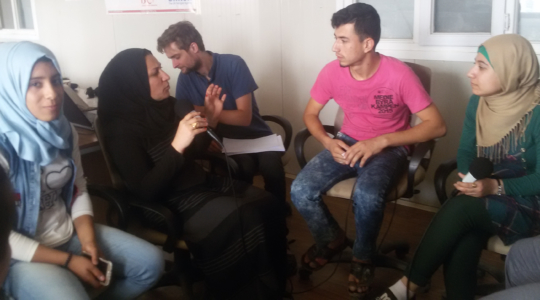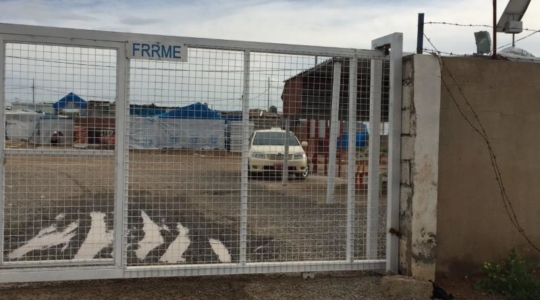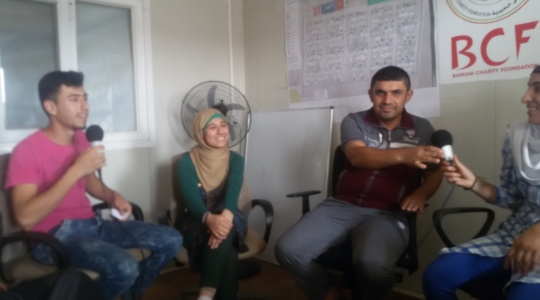September 19th 2017
Today, MicroCamp Radio workshop is in Harsham camp.
This camp located not far from Erbil welcomes 1,500 internally displaced Iraqis from cities of North-West Iraq such as Mosul and Sinjar. They fled because of the Islamic State.
We are warmly welcomed by the camp manager who sits in an office at the entrance of this camp managed by The Barzani Charity Foundation (BCF).
The morning when we arrive, a distribution of food and other items is taking place. Families come to take their packs for the week.
In 2014, when this camp was settled, conditions where hard. For example, there was 1 bathroom for 7 families. Houses were tents and during the rainy season, water was entering in the shelters. Since then, situation has improved. People live in caravans of 3 by 5 meters. There is generally electricity, although sometimes the generator runs out, and plenty of facilities like a brand new football stadium and a golden container named Shared Studios in which one can communicate with people around the world.
We set the radio studio in a prefabricated housing at the entrance of the camp with Nesrin, Haida, Fatima, Shereen, Hani, Houda, Jasmina, Sohad, Sabiha, Hasma and Alya. They are all women who are neighbours in the camp. Their children play around us, climbing on their knees, running around. In the warmth of the afternoon, they are wiping their brows under their veils, chatting together.
Their memories of radio sometimes recall difficult times. “The first time I heard the radio”, Sohad says, “was to hear that America came and defeated the Iraqi government… I was so scared”. But radio is also a vector of hope, as Fatima says :”The radio gave me hope when we were under ISIS. I listened to it all day. Then ISIS destroyed the radios… and I cried, I missed it”.
Radio memories can also get more personal, like for Alya who wanted to become a journalist as a child, but couldn’t because her father did not want her to follow this path. Alya’s example illustrates the fact that here, it is unusual for women to speak out. Jasmina even says that she doesn’t want her family to listen to her during the radio program, because she feels it is not right.
For these women, the workshop opens a rare space of expression. Sharing a similar situation, they discuss about religion, forgiveness, music and education, allowing us to get a precious insight into displaced women’s life.
Listen here to the integral broadcast :
Translation : Rami
